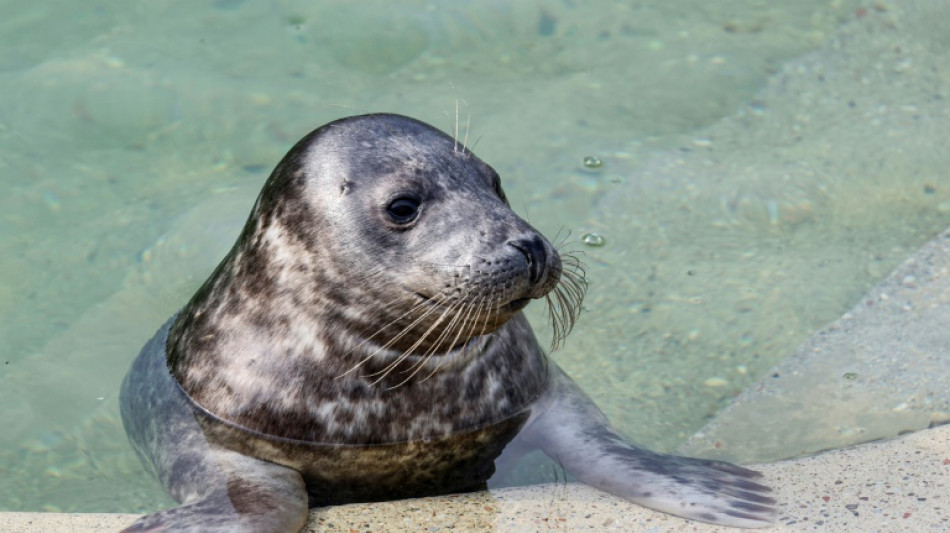
-
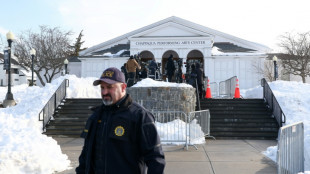 Hillary Clinton quizzed on Epstein, calls for Trump to testify
Hillary Clinton quizzed on Epstein, calls for Trump to testify
-
Man shot by Cuban coast guard wanted to spark uprising: ally
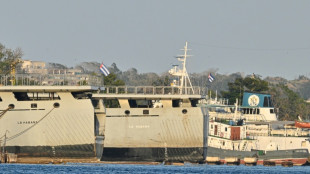
-
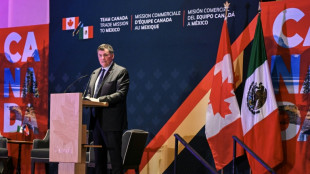 Canada optimistic North American free trade pact will survive
Canada optimistic North American free trade pact will survive
-
Dogs, birds and a calf rescued after deadly rains in Brazil
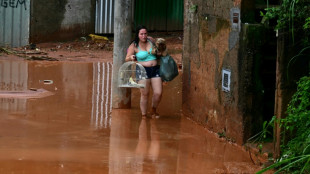
-
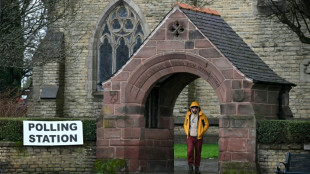 UK Labour party fights hard right, leftists in traditional stronghold
UK Labour party fights hard right, leftists in traditional stronghold
-
Thieves target high-value Pokemon cards as franchise turns 30
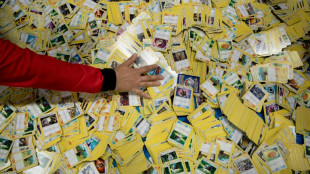
-
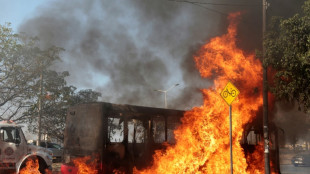 Will the fight to succeed 'El Mencho' spark a new wave of Mexico violence?
Will the fight to succeed 'El Mencho' spark a new wave of Mexico violence?
-
Argentina, Uruguay ratify EU-South America trade deal
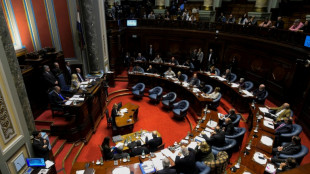
-
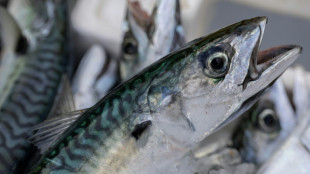 UK supermarket suspends mackerel sales in 'stand against overfishing'
UK supermarket suspends mackerel sales in 'stand against overfishing'
-
Man shot by Cuban coast guard wanted to spark uprising: ally to AFP
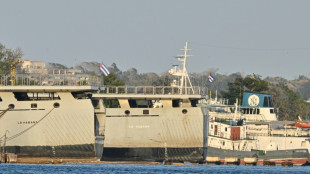
-
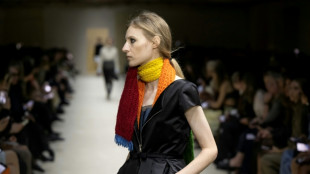 Prada unravels, layers and reveals at Milan Fashion Week
Prada unravels, layers and reveals at Milan Fashion Week
-
Brentford boss Andrews signs new long-term contract
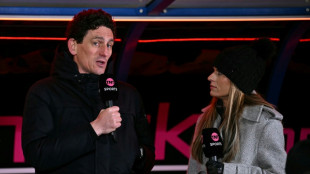
-
 Appeal court drops rape trial for ex-France striker Ben Yedder
Appeal court drops rape trial for ex-France striker Ben Yedder
-
German court rules spy service may not label AfD 'extremist' for now
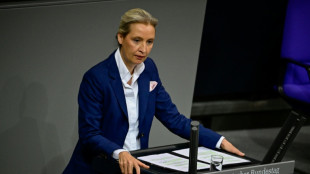
-
 India thrash Zimbabwe in T20 World Cup, S.Africa into semi-finals
India thrash Zimbabwe in T20 World Cup, S.Africa into semi-finals
-
Danish PM calls March 24 election amid US, Russia tensions
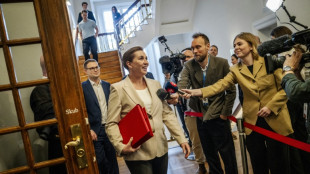
-
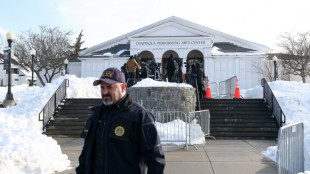 Hillary Clinton calls for Trump to testify as she faces US House Epstein panel
Hillary Clinton calls for Trump to testify as she faces US House Epstein panel
-
Uruguay becomes first country to ratify EU-South America trade deal
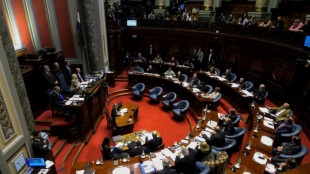
-
 Stocks diverge as investors digest Nvidia earnings
Stocks diverge as investors digest Nvidia earnings
-
Tudor says turning round Tottenham his hardest job

-
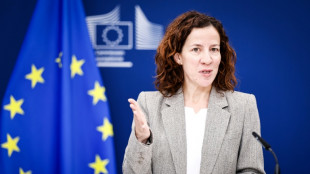 EU says member states can use bloc's funds for 'safe' abortion access
EU says member states can use bloc's funds for 'safe' abortion access
-
More rain lashes southeast Brazil as death toll hits 54
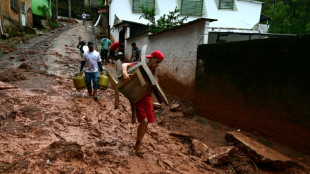
-
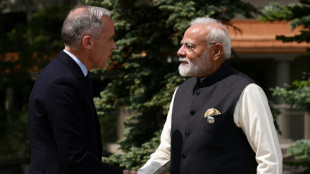 Carney on route to Asia to promote Canada trade as US ties falter
Carney on route to Asia to promote Canada trade as US ties falter
-
Abhishek, Pandya fire India to 256-4 against Zimbabwe
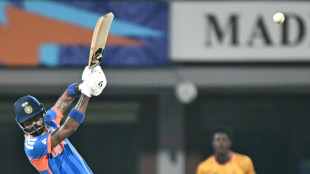
-
 Irish wing Lowe ruled out of rest of Six Nations
Irish wing Lowe ruled out of rest of Six Nations
-
Cuba vows to counter 'terrorist' attacks after clashing with US-based boat
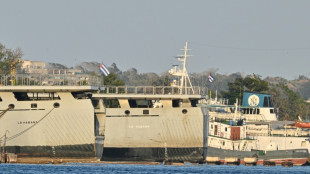
-
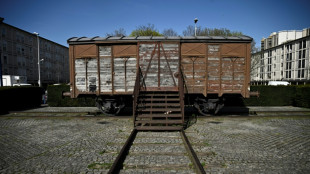 Swastikas tagged at former Nazi transit camp near Paris
Swastikas tagged at former Nazi transit camp near Paris
-
Calls for heads to roll after feeble Sri Lanka T20 World Cup exit

-
 Stocks mixed as investors digest Nvidia earnings
Stocks mixed as investors digest Nvidia earnings
-
Noosha Aubel: Scandal in Potsdam over severely disabled child

-
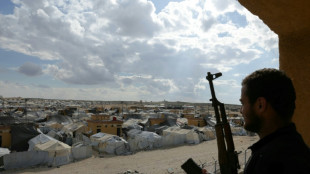 Chaos as jihadist relatives left Syrian camp, witnesses say
Chaos as jihadist relatives left Syrian camp, witnesses say
-
Mother of Greek train tragedy victim takes on politicians in bid for 'justice'

-
 No proven link between Duterte speeches and drug deaths, defence tells ICC
No proven link between Duterte speeches and drug deaths, defence tells ICC
-
Athens court convicts four over Greece spyware saga
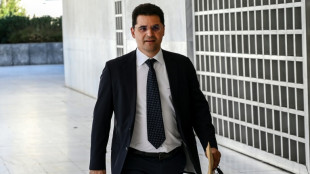
-
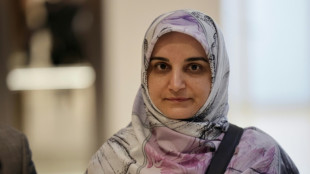 Iranian in possible France prisoner swap jailed for a year
Iranian in possible France prisoner swap jailed for a year
-
US, Ukraine hold talks in Geneva as Russia says 'no deadlines' to end war
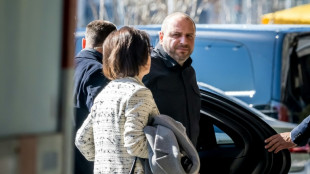
-
 English giants dominate line-up for Champions League last-16 draw
English giants dominate line-up for Champions League last-16 draw
-
Iran, US hold talks in push to avert war
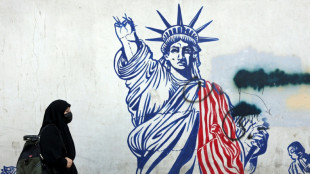
-
 South Africa thrash West Indies in T20 World Cup statement win
South Africa thrash West Indies in T20 World Cup statement win
-
ECB books third straight annual loss
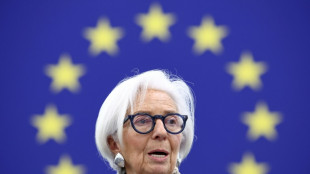
-
 Injury forces Marquez to adapt for MotoGP opener
Injury forces Marquez to adapt for MotoGP opener
-
Booming markets propel Hong Kong exchange's profits to record high

-
 West Indies recover from 83-7 to post to 176-8 against South Africa
West Indies recover from 83-7 to post to 176-8 against South Africa
-
Filmmakers defend Berlin festival chief in Gaza row
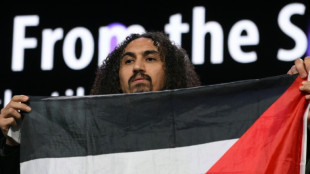
-
 Hong Kong mogul Jimmy Lai wins appeal in fraud case
Hong Kong mogul Jimmy Lai wins appeal in fraud case
-
Iranian in possible prisoner exchange faces 'terrorism' verdict in France
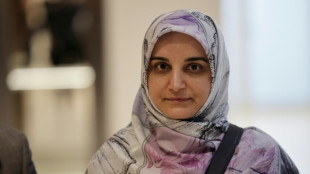
-
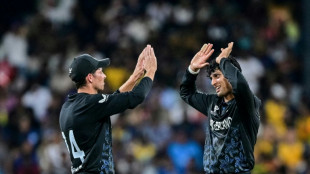 'Street-smart' New Zealand can topple England to make T20 semis: coach
'Street-smart' New Zealand can topple England to make T20 semis: coach
-
Iran-US talks begin in push to avert war
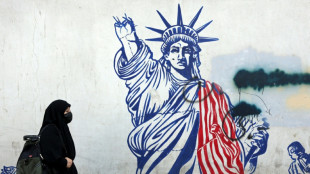
-
 Merz says Germany, China must overcome trade gaps 'together'
Merz says Germany, China must overcome trade gaps 'together'
-
Automaker Stellantis posts massive loss, pivots from EV


Lithuania bids to save Baltic seals as ice sheets recede
The grey seals slide out of their cages into the Baltic Sea near the Lithuanian coast, swimming off to new lives imperilled by climate change, pollution and shrinking fish stocks.
The seals have been nurtured at a rehabilitation centre in the Lithuanian port of Klaipeda.
Survival rates for cubs in the wild can be as low as five percent, according to local scientists.
The Baltic Sea, which is shared by the European Union and Russia, rarely freezes over now, depriving seals of sanctuaries to rear their cubs.
"Mothers are forced to breed on land in high concentration with other seals," said Vaida Surviliene, a scientist at Vilnius University.
"They are unable to recognise their cubs and often leave them because of it," she said.
Rearing cubs ashore also leaves them exposed to humans, other wild animals, rowdy males, as well as a higher risk of diseases, according to Arunas Grusas, a biologist at the centre.
- 'It was a sensation' -
Grusas began caring for seals in 1987 when he brought the first pup back to his office at the Klaipeda Sea Museum, which now oversees the new rehabilitation centre built in 2022.
"We taught them how to feed themselves, got them used to the water –- they had to get comfortable with the sea, which spat them out ashore practically dying," Grusas said.
The very first cubs were placed into makeshift baths set up in an office.
"It was a sensation for us, there were practically no seals left then," Grusas said.
The scientists had to learn how to nurse the cubs back to health.
First, the cubs were treated to liquid formula before moving onto solid food.
At the time in the late 1980s, the seals were close to extinction –- there were just around 4,000 to 5,000 left in the sea from a population of around 100,000 before the Second World War.
"The population began to decrease drastically in the 1950s due to hunting amid competition with fishers," said Surviliene.
- 'Nothing left to eat' -
The 1960s also saw the use of pesticides in agriculture that were "incredibly toxic for predators", the scientist said.
The seals at the top of the food chain in the Baltic Sea absorbed the pollution, leaving the females infertile and the entire population with a weak immune system, unable to ward off parasites and resist infections.
After a ban on toxic pesticide use, the population survived, with the current estimates putting the number of grey seals in the Baltic Sea at 50,000 to 60,000.
In a response to overfishing, the European Commission also finally banned commercial cod fishing in the eastern Baltic Sea in 2019.
"Over 80 percent of fish resources in the Baltic Sea have been destroyed, the seals have nothing left to eat," said Grusas.
The ban has yet to show a positive result.
"There has been no fishing of eastern Baltic cod for around five years, but it's not yet recovering -- and it's one of the main sources of food" for the seals, said Darius Daunys, a scientist at Klaipeda University.
Recently a growing number of adult seals have been washing up on Lithuanian beaches.
Scientists like Grusas point the finger at near-shore fishing nets, where seals desperate for food end up entangled and ultimately drown.
- 'Tired of the tension' -
Out in the Baltic Sea, the nine released seals took their first swim in the wild.
Previously, GPS trackers showed they favoured a route north toward the Swedish Gotland island in the middle of the Baltic Sea, where fish are more plentiful.
Others, however, needed a gentle push from the biologists.
In previous years, the released seals would even follow the boat back to shore, scared to venture off alone.
Eventually they all find their way in the wild.
Grusas is now preparing to retire after dedicating his life to saving animals.
He will leave at a time when the grey Baltic seal population has stabilised, but remains highly vulnerable.
"I've spent my whole life with seals," he said. "I'm tired of the tension –- you just don't know what can happen to them."
H.E.Young--AMWN



